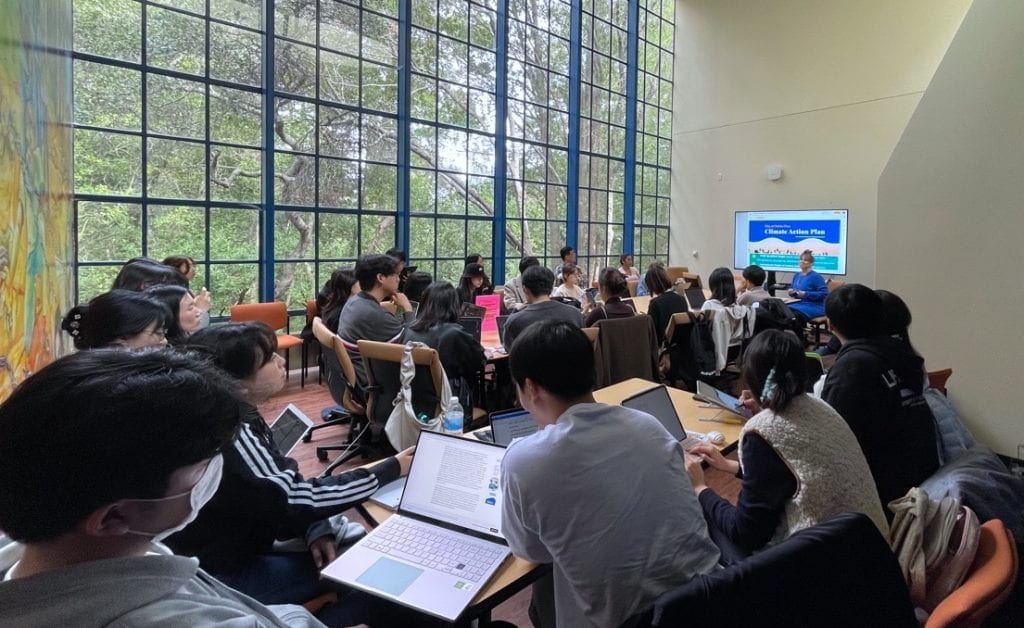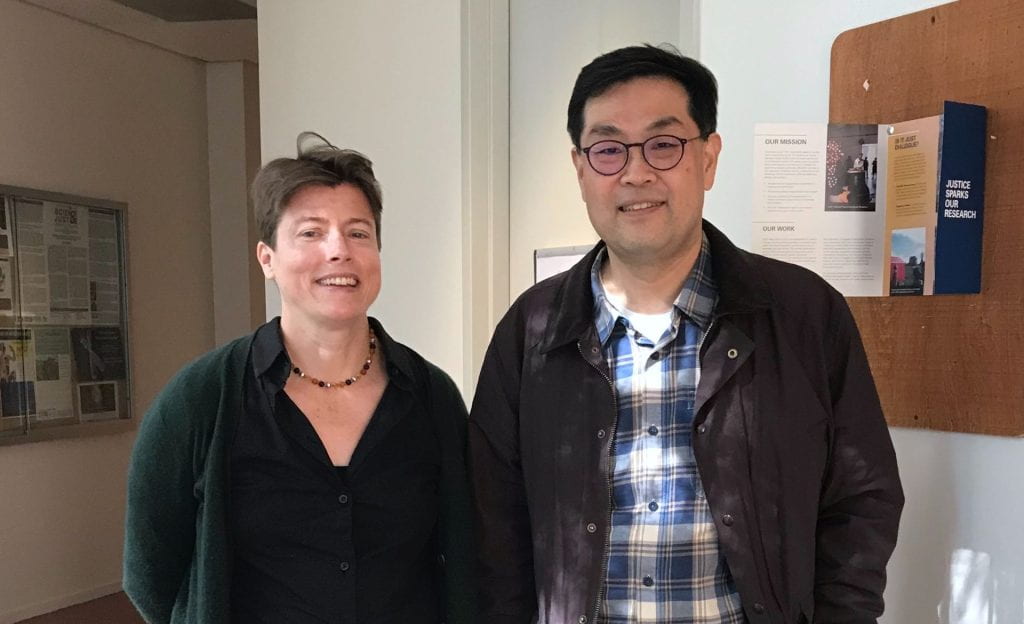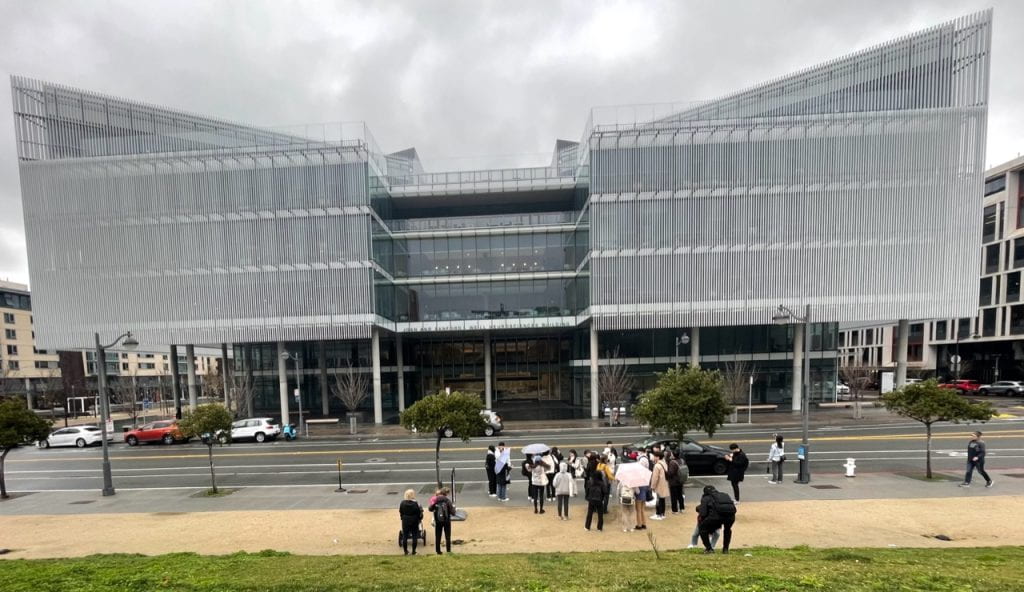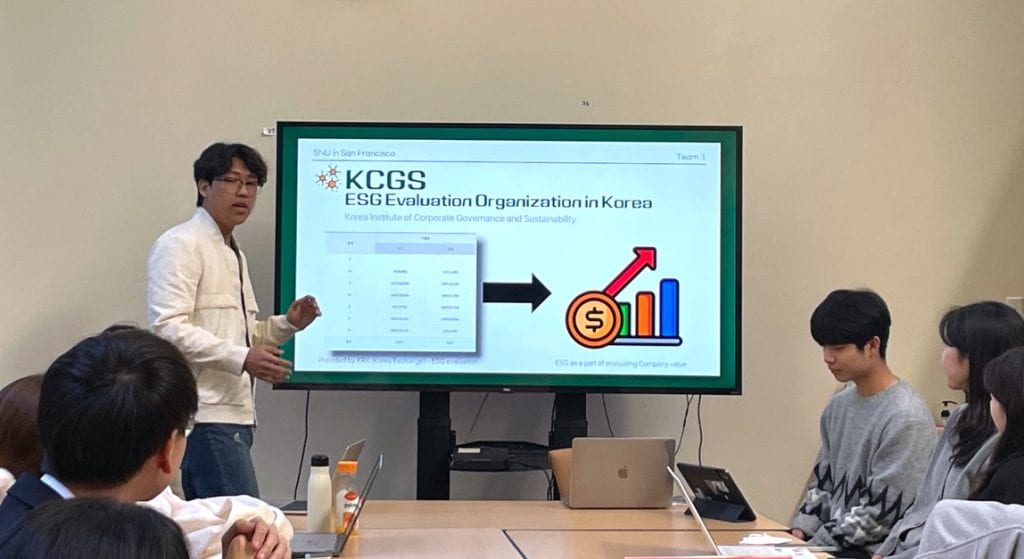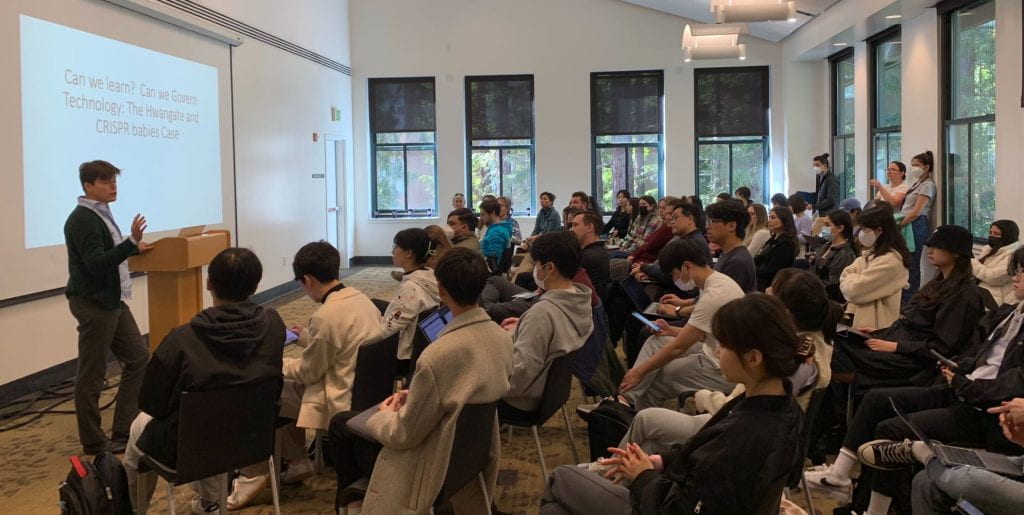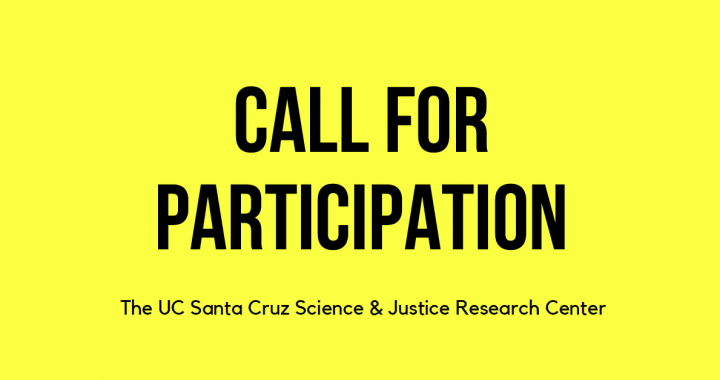SNU In the World Program 2024 Rapporteur Report
Innovation, Science & Justice
University of California, Santa Cruz
January 23, 2024 – February 03, 2024
The Science & Justice Research Center (SJRC) hosted its second year of the SNU in the World Program, with 29 visiting scholars (including Professor Doogab Yi, 2 graduate students, and 26 undergraduates) from Seoul National University (SNU). During their two-week stay, scholars engaged with various projects conducted at the University of California, Santa Cruz (UCSC) by SJRC affiliates. The SNU in the World Program, administered by the Office of International Affairs (OIA) at SNU, is a university-led and government-funded initiative to train South Korean undergraduate students to be globally engaged scholars and leaders. The SNU in the World Program at UCSC is one of five other programs selected for funding and focuses on Innovation, Science and Justice. Other SNU Programs included visits to Washington DC (public policy), Japan (sustainable development), and Australia (climate crisis).
The program was once again facilitated by Doogab Yi, Associate Professor of Science Studies at Seoul National University, who brought together a diverse group of students from fields including the biological sciences, chemistry, computer science, engineering, industrial design, pharmacy, dentistry, sociology, anthropology, business administration, and fine arts. Over the two-week program students participated in an in-depth series of lectures, workshops, a film screening and live performance, and field trips to the surrounding Bay Area museums, cultural centers, and sites of innovation such as Google and an AI enabled lab at Stanford University Hospital. Activities focused on exploring cutting-edge issues including stem cell innovation in organoid intelligence, data and information justice, engineering and AI ethics, health equity, land and site-based practices, and ecological reparations.
Crown College Provost Manel Camps provided the students with an introduction to initiatives in innovation at UC Santa Cruz. These included the Center for Innovation and Entrepreneurial Development (CIED), which promotes the development, research, and teaching of innovation and entrepreneurship at UC Santa Cruz, the Innovation and Business Engagement Hub, and with the Student Creativity Empowerment and Entrepreneurship association (SCEE). SJRC co-directors Jenny Reardon and James Doucet-Battle then took the lead framing the key learning outcomes of the visit centering on pressing topics of bioethics, health disparities, and equitable research. Previous and current projects affiliated with SJRC such as the the Leadership in Ethical & Equitable Design (LEED) of STEM Research Project and the University of California – Historically Black Colleges and Universities (UC-HBCU) Initiative provided insights into the Center’s efforts to center issues of equity and justice in science and engineering.
This year’s SNU in the World program provided an opportunity to bring together a diverse community of researchers, scholars, artists, and policy makers who work in the domain of Science and Justice at UCSC and in the broader Bay Area. On their first day, they had a chance to be in conversation with Tiffany Wise-West, the Sustainability and Climate Action Manager for The City of Santa Cruz and a founding graduate fellow of the Science & Justice Training Program. In this conversation they learned about innovative relationships, environmental justice and the city.
Over dinner that first evening, they met with undergraduate student fellows in the Everett Program for Technology and Social Change. The Everett Program develops young leaders who use the technical, educational, and research resources of the university to work directly with communities, empowering people to develop practical solutions to persistent problems.
Over the following days, students had a chance to engage with a variety of areas and topics. In a session with the UCSC IBSC Stem Cell Journal Club, the visitors engaged in rich conversation surrounding bioethical questions raised by the innovative biotechnological research in organoid intelligence. UCSC Professor of History Ben Breene and Roya Pakzad, Founder and Director of Taraaz, a non-profit organization working at the intersection of technology and human rights, raised the question of ethical dilemmas in engineering from a global historical perspective, while two faculty members in the History of Consciousness department, Maria Puig de la Bellacasa and Dimitris Papadopoulos, approached the question of ecological justice from the framework of community technoscience. Leilani Gilpin and Carolina Flores, Assistant Professors in Computer Science and Engineering and Philosophy respectively, presented their collaborative work on the topic of justice in data science. Chessa Adsit-Morris and James Karabin, graduate researchers in SJRC’s Leadership in the Ethical and Equitable Design (LEED) Initiative, also focused on addressing issues of equity at intellectual and institutional levels in science and engineering.
This year, a series of performances, exhibitions, and film screenings complemented core themes of the lectures. A live performance of Strata: A Performance of Topography, an improvisational documentary meditating on land-based histories, shared thematic resonances with Connie Zheng and Kevin Corcoran’s lecture on land and site-based artistic research practices. Another highlight of the artistic contributions of the program was a screening of Richland, the 2023 documentary film by filmmaker Irene Lusztig centering on the residents and nuclear site workers of Hanford, a manufacturing company of weapons-grade plutonium for the Manhattan Project in the town Richland, Washington. The collective viewing of the film was effective in bringing about cross-cultural exchange of significant social, political, and national differences about world historical events such as the bombing of Hiroshima and Nagasaki. The visitors’ responses to the film showed how the technology of nuclear bombs signifying American imperialism could also be framed as an anti-colonial technology in Korea. Both perspectives raise difficult questions about the role of normalized ideologies in justifying immense violence.
Outside of UCSC, the group participated in several field trips throughout the local Bay Area. They were welcomed to the UC San Francisco Mission Bay Campus by Julie Harris-Wai, an Associate Professor at UCSF’s Institute for Health and Aging in the School of Nursing. Visitors embarked on a walking tour of Third Street led by Reardon and researcher Dennis Browe as part of SJRC’s Just Biomedicine project. Just Biomedicine is a research collective that critically examines the meeting of biomedicine, biotechnology, and big data along the Third Street corridor in the Mission-Bay neighborhood of San Francisco, California. The walking tour was designed to allow participants to think critically about who and what research infrastructures (such as buildings) are for when confronted by accessibility, surveillance, and social stratification issues in the urban landscape. Visitors also had ample free time to explore the city by attending de Young Museum, SF MOMA, and biking the Golden Gate Bridge to Sausalito before visiting Paul Tang’s AI enabled Lab at Stanford Hospital and touring UC Berkeley.
After traveling back to Santa Cruz, SNU students worked in groups to synthesize their lessons throughout the two-week program into conference-style presentations. During the project development phase, groups discussed and debated a number of issues. At the end of the two-week program, teams presented their final research projects covering topics including: the role of artificial intelligence in mental health sciences; access to medical care and the power of walking ethnographies. All of these projects attempted to apply and analyze practical approaches to addressing issues of equity and justice in the realms of science and technology.
To take part in or contribute to this partnership for the next visit in late January 2025, please contact Jenny Reardon (reardon1@ucsc.edu) and Colleen Stone (colleen@ucsc.edu).

